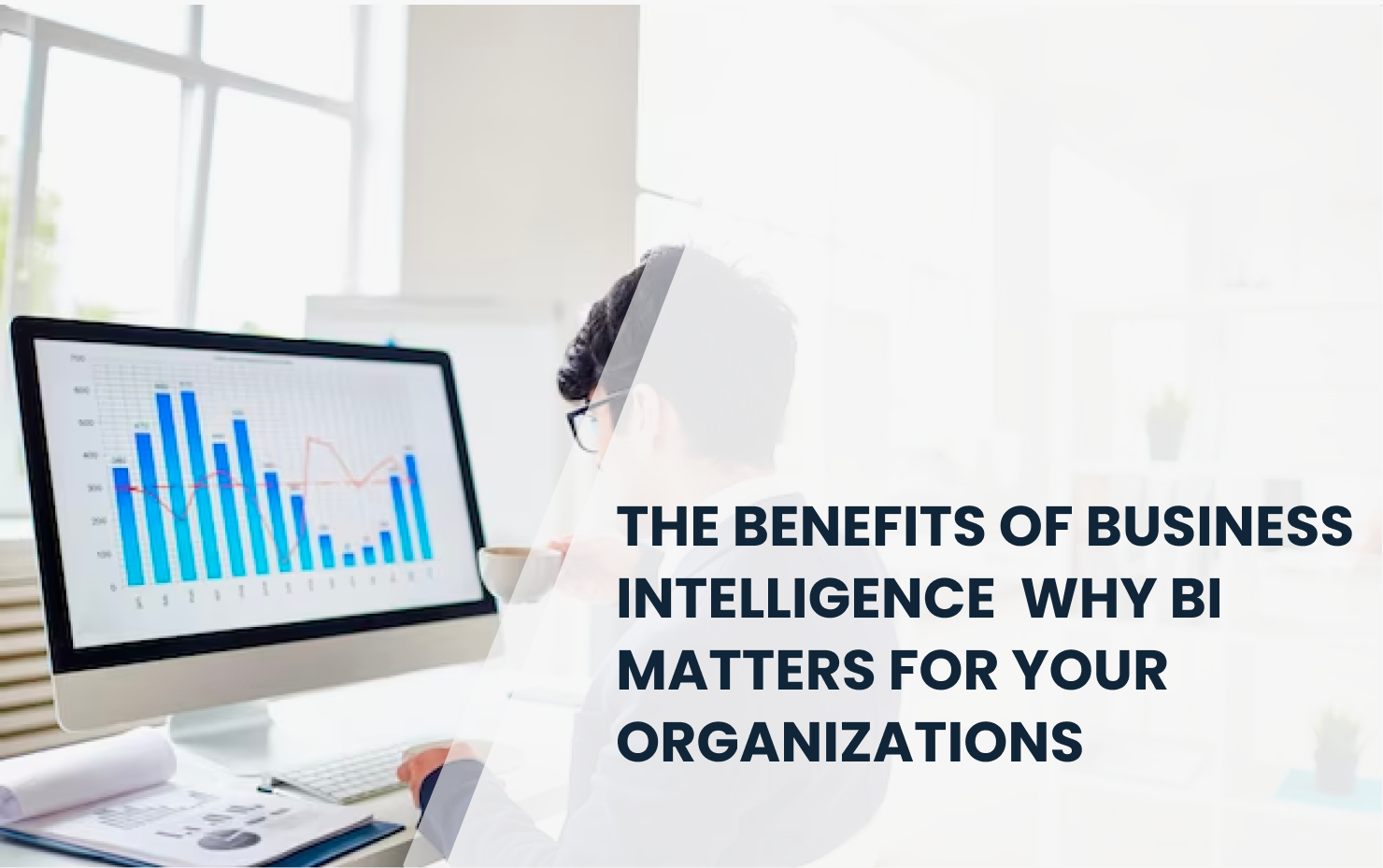The Benefits of Business Intelligence: Why BI Matters for Your Organization

Business Intelligence (BI) refers to the process of collecting, analyzing, and presenting data to aid in making informed business decisions. It involves a combination of technologies, strategies, and practices that enable organizations to transform raw data into valuable insights. The benefits of implementing a robust BI system are numerous and can significantly impact an organization's success. Here are some key reasons why BI matters for your organization:
-
Informed Decision-Making: BI provides access to accurate and timely information, enabling better decision-making at all levels of the organization. Decision-makers can rely on data-driven insights rather than intuition, leading to more effective and strategic choices.
-
Data-driven Culture: BI fosters a culture of data-driven decision-making. When employees have access to relevant data and understand its importance, they are more likely to base their decisions on evidence rather than assumptions.
-
Improved Operational Efficiency: BI tools can help identify bottlenecks, inefficiencies, and areas of improvement within various business processes. By optimizing operations, organizations can enhance productivity and reduce costs.
-
Competitive Advantage: Organizations that leverage BI gain a competitive edge by uncovering market trends, customer preferences, and emerging opportunities before their competitors. This foresight allows businesses to adjust their strategies proactively.
-
Enhanced Customer Insights: BI enables organizations to analyze customer behavior and preferences. By understanding customers better, companies can tailor their products, services, and marketing efforts to meet specific needs, leading to higher customer satisfaction and loyalty.
-
Predictive Analysis: BI tools can utilize historical data to predict future trends and outcomes. This capability helps organizations anticipate market shifts, demand fluctuations, and other critical factors, allowing for proactive planning.
-
Real-time Monitoring: With BI dashboards and reporting tools, organizations can monitor key performance indicators (KPIs) in real time. This timely information empowers quick responses to changing conditions and helps prevent potential issues.
-
Risk Management: BI aids in identifying and mitigating risks by analyzing historical data and identifying patterns associated with risks. This proactive approach enables organizations to take preventive measures and minimize potential losses.
-
Strategic Planning: BI supports long-term strategic planning by providing insights into market trends, customer behaviors, and industry developments. This information helps organizations align their goals with the evolving business landscape.
-
Cross-functional Collaboration: BI systems provide a centralized platform for sharing insights across different departments and teams. This promotes collaboration, as teams can base their actions on a common understanding of the data.
-
Measurable ROI: Investing in BI can lead to measurable returns on investment. Improved decision-making, optimized operations, and enhanced customer satisfaction can all contribute to increased revenue and profitability.
-
Compliance and Governance: BI systems often include features that ensure data security, privacy, and compliance with regulations. This is crucial for industries that handle sensitive information.
-
Quick Adaptation to Change: In rapidly changing business environments, BI helps organizations adapt by providing accurate, up-to-date information. This agility is essential for staying ahead in dynamic markets.
| Benefit | Description |
|---|---|
| Informed Decision-Making | Enables data-driven choices, leading to more effective and strategic decisions. |
| Data-driven Culture | Fosters a culture where decisions are based on evidence and data rather than intuition. |
| Improved Operational Efficiency | Identifies inefficiencies, bottlenecks, and process improvements, enhancing productivity. |
| Competitive Advantage | Provides insights into market trends, customer preferences, and emerging opportunities. |
| Enhanced Customer Insights | Analyzes customer behavior for personalized offerings, leading to higher satisfaction. |
| Predictive Analysis | Uses historical data to predict future trends, enabling proactive planning. |
| Real-time Monitoring | Monitors KPIs in real time, allowing quick responses to changing conditions. |
| Risk Management | Identifies and mitigates risks by analyzing historical data and patterns. |
| Strategic Planning | Supports long-term planning by providing insights into market trends and industry developments. |
| Cross-functional Collaboration | Facilitates sharing insights across departments, promoting collaboration and alignment. |
| Measurable ROI | Delivers measurable returns through improved decision-making, efficiency, and satisfaction. |
| Compliance and Governance | Includes features for data security, privacy, and regulatory compliance. |
| Quick Adaptation to Change | Provides up-to-date information for agile responses to dynamic business environments. |
-1.png?width=2600&height=450&name=RetailMetrixLogo%20(1)-1.png)
